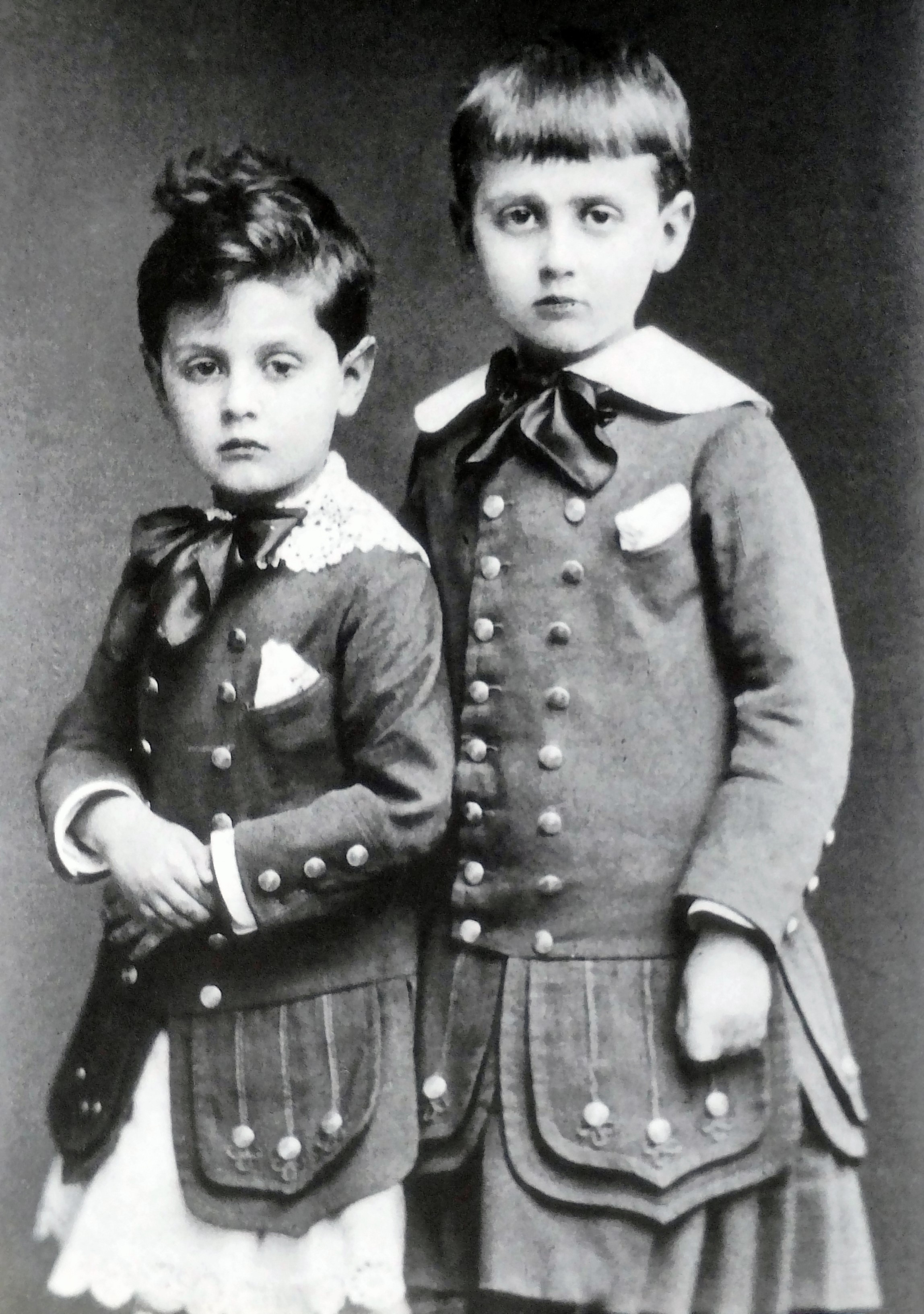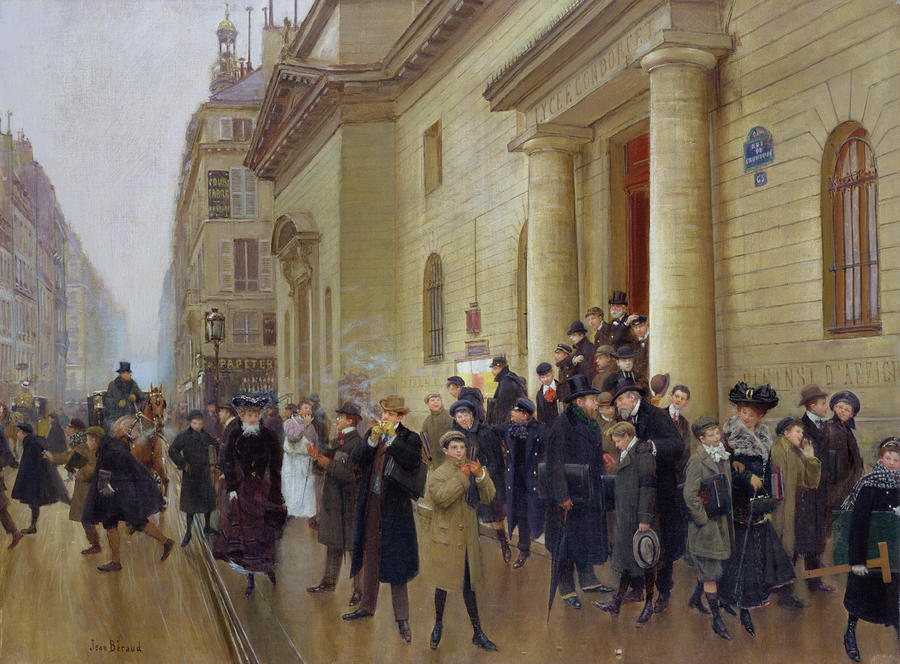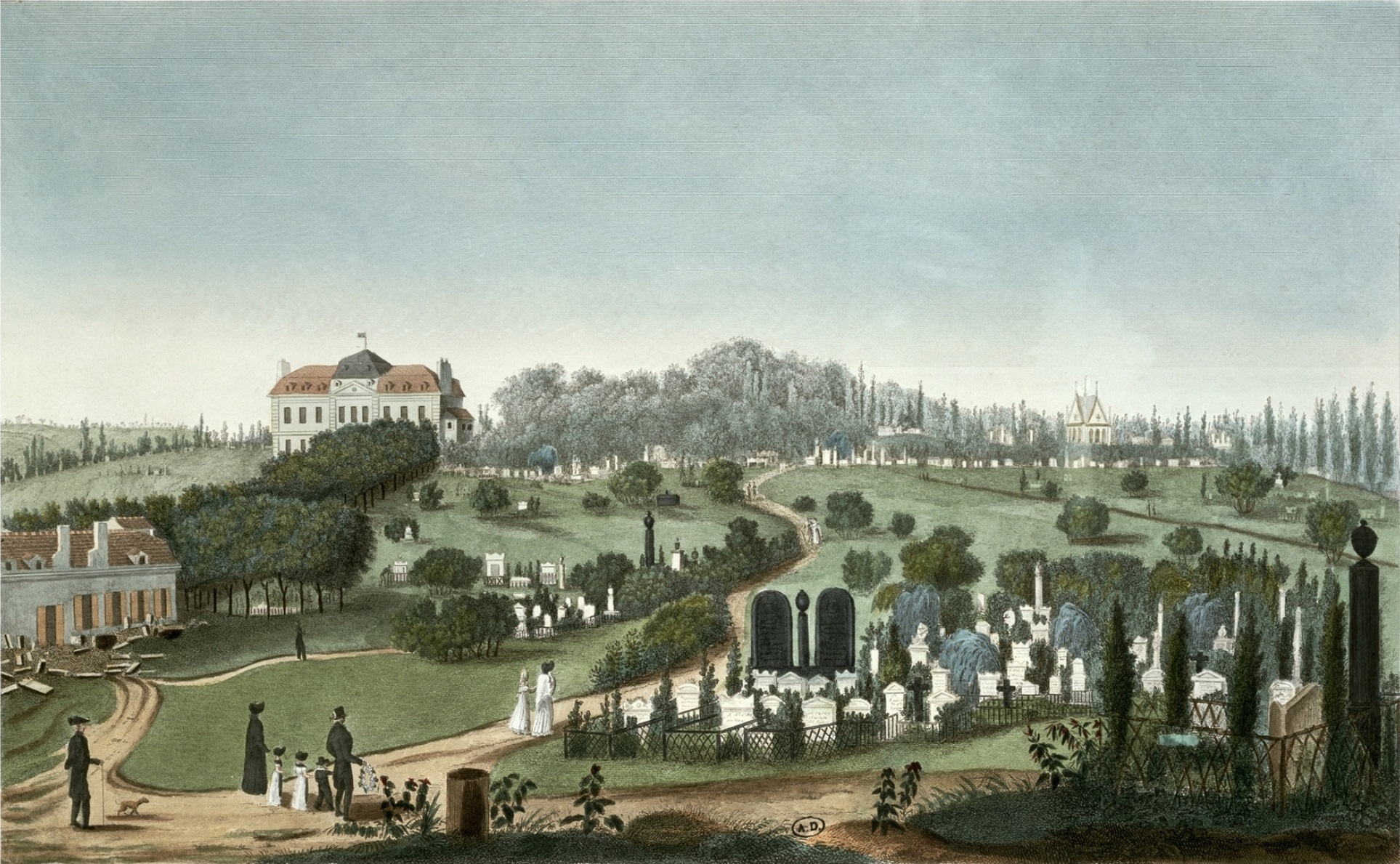|
Proust
Valentin Louis Georges Eugène Marcel Proust ( ; ; 10 July 1871 – 18 November 1922) was a French novelist, literary critic, and essayist who wrote the novel (in French language, French – translated in English as ''Remembrance of Things Past'' and more recently as ''In Search of Lost Time'') which was published in seven volumes between 1913 and 1927. He is considered by critics and writers to be one of the most influential authors of the 20th century. Proust was born in the Auteuil, Paris, Auteuil quarter of Paris, to a wealthy bourgeois family. His father, Adrien Proust, was a prominent pathology, pathologist and epidemiologist who studied cholera. His mother, Jeanne Clémence Weil, was from a prosperous Jewish family. Proust was raised in his father's Catholic Church, Catholic faith, though he later became an atheist. From a young age, he struggled with severe asthma attacks which caused him to have a disrupted education. As a young man, Proust cultivated interests in lite ... [...More Info...] [...Related Items...] OR: [Wikipedia] [Google] [Baidu] |
In Search Of Lost Time
''In Search of Lost Time'' (), first translated into English as ''Remembrance of Things Past'', and sometimes referred to in French as ''La Recherche'' (''The Search''), is a novel in seven volumes by French author Marcel Proust. This early twentieth-century work is his most prominent, known both for its length and its theme of involuntary memory. The most famous example of this is the "episode of the Madeleine (cake), madeleine", which occurs early in the first volume. The novel gained fame in English through translations by C. K. Scott Moncrieff and Terence Kilmartin and was known in the Anglosphere as ''Remembrance of Things Past''. The title ''In Search of Lost Time'', a literal rendering of the French, became ascendant after D. J. Enright adopted it for his revised translation published in 1992. ''In Search of Lost Time'' follows the narrator's recollections of childhood and experiences into adulthood in late 19th-century and early 20th-century High society (social class), ... [...More Info...] [...Related Items...] OR: [Wikipedia] [Google] [Baidu] |
Robert Proust
Robert Emile Sigismond Léon Proust (24 May 1873 – 29 May 1935) was a French urologist and gynaecologist and the younger brother of the writer Marcel Proust. Both brothers had an early education at the Lycée Condorcet, with Robert Proust going on to study medicine. An active supporter of his brother's writing career, and following Marcel's early death, he arranged for publication of the final three volumes of Marcel's novel '' À la recherche du temps perdu''. He published a landmark medical paper on perineal prostatectomy, "De la prostatectomie périnéale totale", following which his colleagues nicknamed his prostate procedure a "proustatectomie". In addition, his interest in gynaecology led to his publication of multiple editions of ''Chirurgie de l'appareil génital de la femme'', a gynaecology textbook. Amongst other accomplishments, Proust served as a military surgeon during the First World War where he devised a form of mobile operating theatre called the "auto-c ... [...More Info...] [...Related Items...] OR: [Wikipedia] [Google] [Baidu] |
Adrien Proust
Adrien Achille Proust (18 March 1834 – 26 November 1903) was a French epidemiologist and hygienist. He was the father of novelist Marcel Proust and doctor Robert Proust. Biography He studied medicine in Paris where obtained his medical doctorate in 1862. Beginning in 1863 he worked as ''chef de clinique'', and in 1866 earned his agrégation with the thesis ''Des différentes formes de ramollissement du cerveau'' (On different forms of softening of the brain). In 1869, he was sent on a mission to Russia and Persia in order to conduct cholera research – a journey in which he also visited Athens, Constantinople, Messina and several locations in Germany.PROUST (Adrien-Achille) BiuSante He was a professor of hygiene at the faculty of medicine in Paris, and chief physician at the |
Les Plaisirs Et Les Jours
''Les Plaisirs et les Jours'' is a collection of prose poems and novellas by Marcel Proust Valentin Louis Georges Eugène Marcel Proust ( ; ; 10 July 1871 – 18 November 1922) was a French novelist, literary critic, and essayist who wrote the novel (in French – translated in English as ''Remembrance of Things Past'' and more r .... It was first published in 1896 by Calmann-Lévy, and was Proust’s first publication. The critic Léon Blum said of the book: "Nouvelles mondaines, histoires tendres, vers mélodiques, fragments où la précision du trait s'atténue dans la grâce molle de la phrase, M. Proust a réuni tous les genres et tous les charmes. Aussi les belles dames et les jeunes gens liront avec un plaisir ému un si beau livre". Accessed 18 Sept 2014 ("High society short stories, ... [...More Info...] [...Related Items...] OR: [Wikipedia] [Google] [Baidu] |
Lycée Condorcet
The Lycée Condorcet () is a secondary school in Paris, France, located at 8, rue du Havre, in the city's 9th arrondissement. Founded in 1803, it is one of the four oldest high schools in Paris and also one of the most prestigious. Since its inception, various political eras have seen it given a number of different names, but its identity today honors the memory of the Marquis de Condorcet. Henri Bergson, Horace Finaly, Claude Lévi-Strauss, Marcel Proust, Jean-Luc Marion, Francis Poulenc and Paul Verlaine are some of the students who attended the Lycée Condorcet. Some of the school's famous teachers include Jean Beaufret, Paul Bénichou, Jean-Marie Guyau, Jean-Paul Sartre, and Stéphane Mallarmé. History During the greater part of the nineteenth century, the school was the "great Liberal High School" on the right bank with its relatively flexible regime that was chosen by the progressive bourgeoisie for its sons. It is among the few schools in Paris that never had st ... [...More Info...] [...Related Items...] OR: [Wikipedia] [Google] [Baidu] |
John Ruskin
John Ruskin (8 February 1819 20 January 1900) was an English polymath a writer, lecturer, art historian, art critic, draughtsman and philanthropist of the Victorian era. He wrote on subjects as varied as art, architecture, Critique of political economy, political economy, education, museology, geology, botany, ornithology, literature, history, and myth. Ruskin's writing styles and literary forms were equally varied. He wrote essays and treatises, poetry and lectures, travel guides and manuals, letters and even The King of the Golden River, a fairy tale. He also made detailed sketches and paintings of rocks, plants, birds, landscapes, architectural structures and ornamentation. The elaborate style that characterised his earliest writing on art gave way in time to plainer language designed to communicate his ideas more effectively. In all of his writing, he emphasised the connections between nature, art and society. Ruskin was hugely influential in the latter half of the 19th c ... [...More Info...] [...Related Items...] OR: [Wikipedia] [Google] [Baidu] |
Père Lachaise Cemetery
Père Lachaise Cemetery (, , formerly , ) is the largest cemetery in Paris, France, at . With more than 3.5 million visitors annually, it is the most visited necropolis in the world. Buried at Père Lachaise are many famous figures in the arts, including Miguel Ángel Asturias, Honoré de Balzac, Sarah Bernhardt, Georges Bizet, Frédéric Chopin, Colette, George Enescu, Max Ernst, Olivia de Havilland, Marcel Marceau, Georges Méliès, Amedeo Modigliani, Molière, Édith Piaf, Camille Pissarro, Marcel Proust, Gertrude Stein, Oscar Wilde, Richard Wright (author), Richard Wright, Sadegh Hedayat, Jim Morrison, and Michel Petrucciani. Many famous philosophers, scientists, and historical figures are buried there as well, including Peter Abelard, Pierre Bourdieu, Jean-François Champollion, Auguste Comte, Georges Cuvier, Joseph Fourier, Manuel Godoy, Georges-Eugène Haussmann, Jean-François Lyotard, Nestor Makhno, Maurice Merleau-Ponty, Jean Moulin, Henri de Saint-Simon, Jean-Bap ... [...More Info...] [...Related Items...] OR: [Wikipedia] [Google] [Baidu] |
Auteuil, Paris
Auteuil () is the 61st and westernmost Quarters of Paris, quarter of Paris, France, located in the 16th arrondissement of Paris, 16th arrondissement, on the Rive Droite, Right Bank. It is adjacent to Passy to the northeast (administratively part of la Muette), Boulogne-Billancourt to the southwest, and the Bois de Boulogne to the northwest. A very discreet neighborhood, it is known for its mainly Catholic and old-money heritage population. Toponymy The origin of the name "Auteuil" comes from "Attolium" which derives from the Latin altus, meaning "high". History Auteuil was originally a hamlet (place), hamlet named ''Attolium'' on the outskirts of Paris, built between the thirteenth and seventeenth centuries; it became a fashionable country retreat for French elites during the reign of Louis XV. Passy was dependent on the parish of Auteuil until 1761. After the French Revolution, Auteuil became a commune in France, commune of Seine (department), Seine. It was absorbed into Paris ... [...More Info...] [...Related Items...] OR: [Wikipedia] [Google] [Baidu] |
Modernist Literature
Modernist literature originated in the late 19th and early 20th centuries, and is characterised by a self-conscious separation from traditional ways of writing in both poetry and prose fiction writing. Modernism experimented with literary form and expression, as exemplified by Ezra Pound's maxim to "Make it new". This literary movement was driven by a conscious desire to overturn traditional modes of representation and express the new sensibilities of the time. The immense human costs of the First World War saw the prevailing assumptions about society reassessed, and much modernist writing engages with the technological advances and societal changes of modernity moving into the 20th century. In ''Modernist Literature'', Mary Ann Gillies notes that these literary themes share the "centrality of a conscious break with the past", one that "emerges as a complex response across continents and disciplines to a changing world". Modernism, Romanticism, Philosophy and Symbol Literary mo ... [...More Info...] [...Related Items...] OR: [Wikipedia] [Google] [Baidu] |
Novelist
A novelist is an author or writer of novels, though often novelists also write in other genres of both fiction and non-fiction. Some novelists are professional novelists, thus make a living wage, living writing novels and other fiction, while others aspire to support themselves in this way or write as an avocation. Most novelists struggle to have their debut novel published, but once published they often continue to be published, although very few become literary celebrities, thus gaining prestige or a considerable income from their work. Description Novelists come from a variety of backgrounds and social classes, and frequently this shapes the content of their works. Audience reception, Public reception of a novelist's work, the literary criticism commenting on it, and the novelists' incorporation of their own experiences into works and characters can lead to the author's personal life and identity being associated with a novel's fictional content. For this reason, the environment ... [...More Info...] [...Related Items...] OR: [Wikipedia] [Google] [Baidu] |
Treaty Of Frankfurt (1871)
The Treaty of Frankfurt (; ) was a peace treaty signed in Frankfurt on 10 May 1871, at the end of the Franco-Prussian War. Summary The treaty did the following: * Established the frontier between the French Third Republic and the German Empire, which involved the ceding of 1,694 French villages and cities to Germany in: ** Alsace: the French departments of Bas-Rhin and Haut-Rhin, except for the city of Belfort and its territory; ** Lorraine: most of the French department of Moselle, one-third of the department of Meurthe, including the cities of Château-Salins and Sarrebourg, and the cantons Saales and Schirmeck in the department of Vosges. * Gave residents of the Alsace-Lorraine region until 1 October 1872 to decide between keeping their French nationality and emigrating, or remaining in the region and becoming German citizens. * Set a framework for the withdrawal of German troops from certain areas. * Regulated the payment of France's war indemnity of five billion ... [...More Info...] [...Related Items...] OR: [Wikipedia] [Google] [Baidu] |
English Language
English is a West Germanic language that developed in early medieval England and has since become a English as a lingua franca, global lingua franca. The namesake of the language is the Angles (tribe), Angles, one of the Germanic peoples that Anglo-Saxon settlement of Britain, migrated to Britain after its End of Roman rule in Britain, Roman occupiers left. English is the list of languages by total number of speakers, most spoken language in the world, primarily due to the global influences of the former British Empire (succeeded by the Commonwealth of Nations) and the United States. English is the list of languages by number of native speakers, third-most spoken native language, after Mandarin Chinese and Spanish language, Spanish; it is also the most widely learned second language in the world, with more second-language speakers than native speakers. English is either the official language or one of the official languages in list of countries and territories where English ... [...More Info...] [...Related Items...] OR: [Wikipedia] [Google] [Baidu] |







